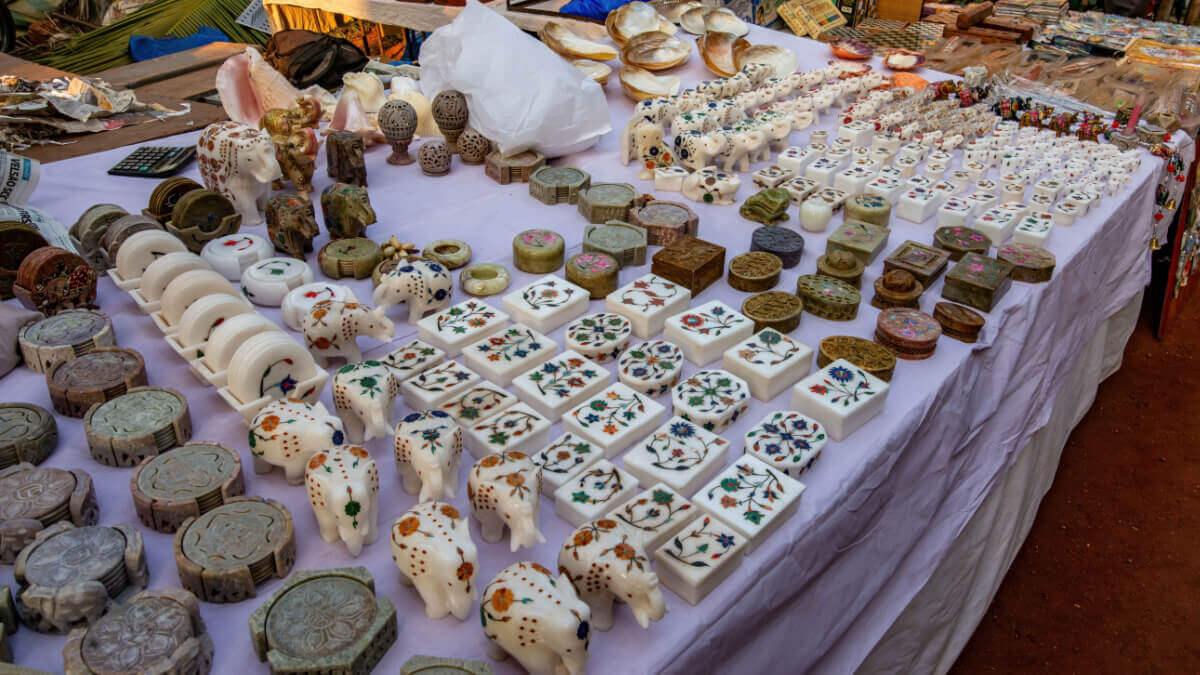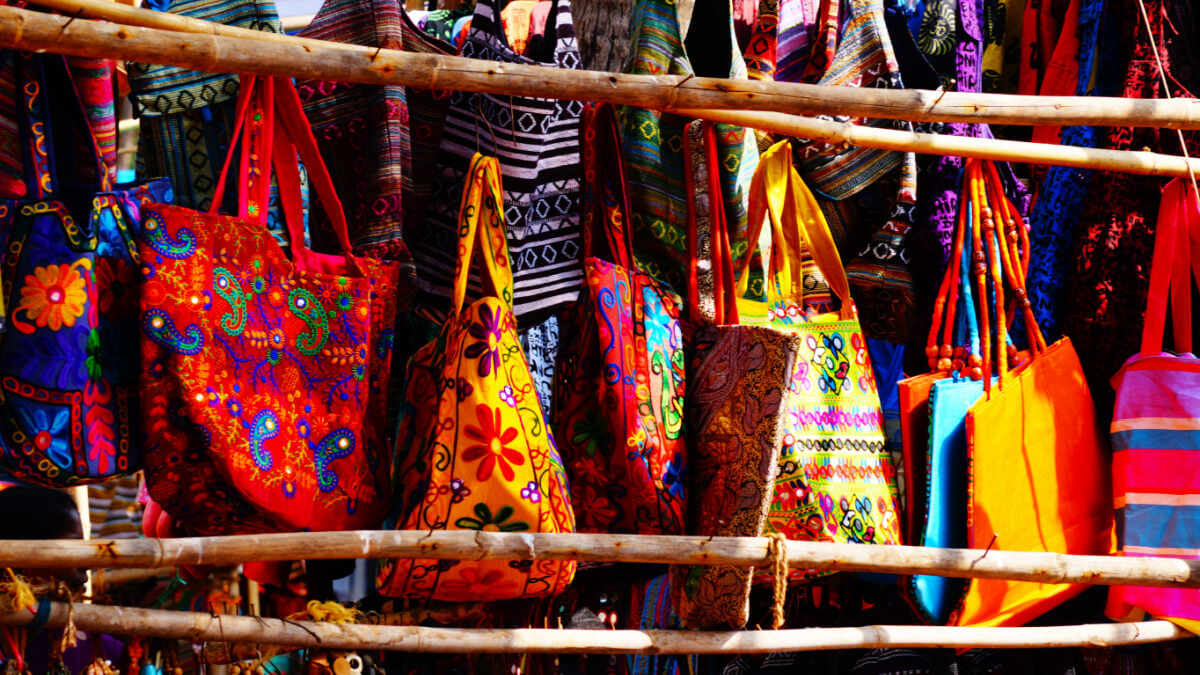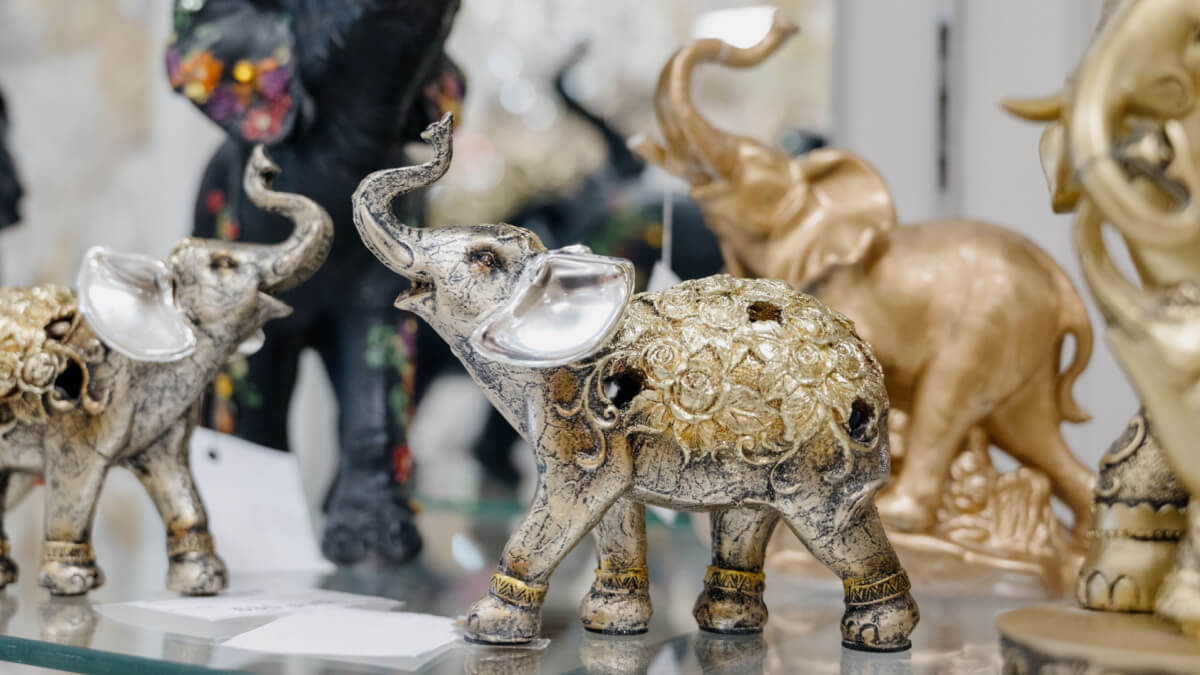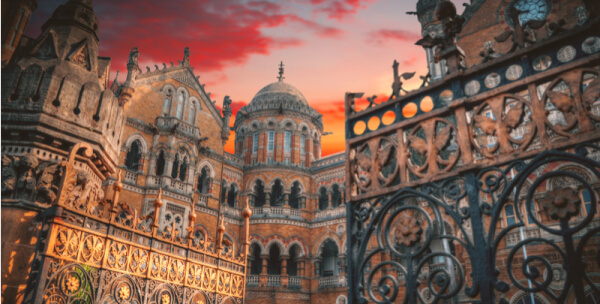Can I use Monzo in India?
Check out our handy guide to using your Monzo card and account in India, including what fees you can expect.

If you’re a collector or appreciator of antique furniture, art and decorative accessories from the UK, you’ll want to go to India. It’s a fantastic place to find exquisite pieces made by skilled artisans from precious metals and exotic woods, some with fascinating histories and stories to tell.
But in such a vast country, where do you begin your search for that one special piece? We’re here to help, with our essential guide to buying antiques in India.
This includes a look at the best antique shops in India, along with markets and dealers. We’ll give you some tips on haggling and buying, along with info on how to get your purchases back home to the UK.
And if you need a smart way to purchase antiques in Indian rupees, without losing out to poor exchange rates and high fees - check out the Wise account from the money services provider Wise.
Please see the Terms of Use for your region or visit Wise fees & pricing for the most up-to-date information on pricing and fees.
| Table of Contents |
|---|
Yes, you can buy antiques in India as a foreigner - but there are a few important laws and restrictions you need to know about.
According to the Indian Government’s Antiquities and Art Treasures Act (1972), it is not permitted to export antiquities over 100 years old out of the country.¹
This means that as a private buyer, you can’t purchase an antique of Indian origin that is over a century old and ship it back to the UK. To do so would be breaking the law, unless you have been given specific authorisation by the Indian government.¹
The law counts the following as antiquities:¹
It also includes manuscripts, records or other documents that have been in existence for at least 75 years. The law is designed to prevent the illegal smuggling of precious antiques out of the country.¹
This doesn’t mean however that you can’t buy younger Indian antiques and bring them back home to the UK. You’ll just need to check the age and provenance of the item, to make sure you’re following the letter of the law.
There are a number of places to hunt out unique and beautiful antiques in India.
Hotspots for antique shopping include:²
In India, you can head to specialist antiques stores or dealers if you’re after something in particular. Or you can browse the many street markets and bazaars to uncover an unexpected treasure - where rummaging and haggling is all part of the experience.
| 📚 Read more: The best UK bank accounts for travelling and travel insurance |
|---|
Love the hustle and bustle of a market, and the thrill of discovering something special among second-hand junk? You’ll want to head to one of India’s many fantastic antiques and vintage markets.
There are quite a few to choose from, spread throughout the country. Here are just a handful to help you start planning your shopping trip:

There are also a number of renowned antiques shops in India, along with auction houses, warehouses and whole districts of vintage stores. Some of the best include:²
If it’s your first time antique shopping in India, you’ll need to know about the local customs. Here are some helpful tips to help you shop safe and smart, and get the best deal:
If cards are accepted at the particular antiques store you’re buying at, the Wise card is one of the best you can use.
The Wise card automatically converts your British pounds to Indian rupees when you spend, for just a small conversion fee. Best of all, it does the conversion at the mid-market exchange rate. This means you get more rupees for your pounds, so you can splash out a little more at the flea market.
Learn more about the Wise card 💳
Please see the Terms of Use for your region or visit Wise fees & pricing for the most up-to-date information on pricing and fees.
Whether you have something specific in mind or you’re happy to browse, it’s useful to know the best places to go for each category of antiques. We’ve put together a few tips below.

For furniture, your best bet is a specialist dealer or furniture market, such as the Oshiwara Furniture Market, Jogeshwari.
You can also try antiques shops which specialise in a particular era or type of furniture, such as Kohli Furnitures in Delhi which specialises in Raj-era colonial pieces.²
If you’re prepared to sift through plenty of junk, you’re likely to uncover maps and postcards at some of the better flea markets in India. Balaji’s Antiques and Collectibles in Bengaluru is also known to be a good spot for unearthing antique Indian maps.²
There are a few good places to pick up vintage clothing and textiles in India. The Russell Exchange auction house in Kolkata is known for auctioning vintage clothes on certain days, and you can also find a huge range of textiles and clothes dating back 50+ years at the Museum Quality Textiles shop in Bhuj.²
For everything else, flea markets are the places to go. If you’re searching for a specific item though, you may be best researching the specialist dealers and shops in the area.
| 📚 Read more: 7 best UK-issued prepaid travel cards for Europe |
|---|
Finding that one special item and negotiating the price are only part of the experience when buying antiques in India. The next challenge is figuring out how to ship your purchases back home to the UK.
The first and most crucial thing to remember is that it is illegal to import Indian-origin antiquities over 100 years old out of India. If unsure whether your item is covered by the law, it’s always smart to double-check.
For items you are allowed to import from India to the UK, it’s recommended to work with a third party importer or shipping company to help you get your item safely back to the UK. There are customs regulations and paperwork to navigate, and taxes and duties to pay. It can be complicated, and getting it wrong can be costly.
It may be the case that the antiques dealer you buy from can recommend a suitable shipping company.
Antiques dealers tend to be specialists in their own area, such as in a particular era or type of furniture. So to find the best Indian antique dealers, you may need to narrow down your search.
A good place to start is this list compiled by Architectural Digest, which features some of the best shops, markets, auction houses and dealers in India - as recommended by industry experts.
With your antiques safely shipped back home in the UK, all that’s left to do is find the perfect spot to display them.
You’ll also want to look up information on maintaining the item, especially for anything rare or fragile. You may be able to get some advice from the seller before leaving India.
It’s also smart to consider getting insurance and reviewing your security measures, in order to safeguard particularly valuable purchases.
If you and your antiques are settling in India, make sure to read our guide to cost of living in India.
And that’s it - your essential guide to buying antiques in India. It’s a huge country known for its magnificent and diverse selection of antiques, but you need to know where to look. There are also those laws prohibiting the export of older antiques, which could put a damper on your antiques hunt.
But hopefully after reading this, you’ll have an idea of where to start planning your shopping trip.
And, if you want a transparent, low-cost way to handle your travel expenses abroad, check out the Wise account and get the Wise card to spend with a fair exchange rate.
Please see the Terms of Use for your region or visit Wise fees & pricing for the most up-to-date information on pricing and fees.
Sources used for this article:
Sources checked on 19-Oct-2023.
*Please see terms of use and product availability for your region or visit Wise fees and pricing for the most up to date pricing and fee information.
This publication is provided for general information purposes and does not constitute legal, tax or other professional advice from Wise Payments Limited or its subsidiaries and its affiliates, and it is not intended as a substitute for obtaining advice from a financial advisor or any other professional.
We make no representations, warranties or guarantees, whether expressed or implied, that the content in the publication is accurate, complete or up to date.

Check out our handy guide to using your Monzo card and account in India, including what fees you can expect.

Can I use my Revolut card in India? A handy guide to using a Revolut card to spend in Indian rupees, including fees and exchange rates.

A handy guide on how to buy an Indian sim card, including major mobile network operators and prices for prepaid plans.

If you’ve never considered a trip to India, you should think again. From the food to the stunning religious monuments, India has plenty to see and experience....

Planning a visit to India? It’s a culturally diverse country with vibrant cities, breathtaking beaches, and majestic mosques. It’s a true destination for many...

If you’re travelling to India on holiday, you can’t get cash ahead of time. Indian law doesn’t allow foreigners to bring Indian currency into the country,...